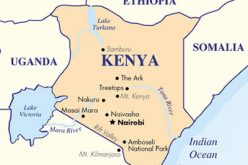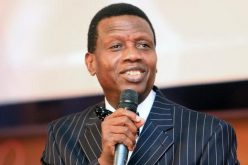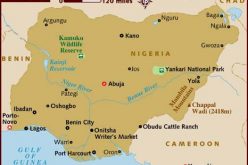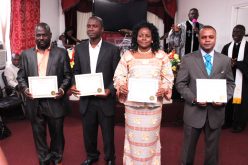 The Most Rev. Charles Gabriel Palmer Buckle, Metropolitan Archbishop of the Catholic Archdiocese of Accra, has asked Christians to bring Christ-like perspective of advocacy to bear in the proclamation of the Good News to the world.
The Most Rev. Charles Gabriel Palmer Buckle, Metropolitan Archbishop of the Catholic Archdiocese of Accra, has asked Christians to bring Christ-like perspective of advocacy to bear in the proclamation of the Good News to the world.
Emphasising the point that advocacy “is a call to duty,” the Archbishop referred Jesus’ words in Luke 4:18-21 and said Christians (Catholics) were by virtue of their baptism, called by Jesus Christ to be advocates to bring Good News to the poor, stop the rot in society, bring light and clarity to issues as well as bring development to wherever they found themselves.
He said this at the opening of a three-day Workshop on the Catholic Social Teaching, Advocacy and Community Empowerment at the Presbyterian Women’s Centre, Abokobi.
The Workshop, which brought together 63 participants from the Archdiocese, included representatives of various Parishes, Catechists, groups comprising Catholic Professionals – Lawyers Guild, Health Professionals, Association of Social Scientists and Media Practitioners. It was organised by the Business and Faith Development Centre (B.F.D.C.) of the Catholic Institute of Business and Technology (CIBT), Accra and the Africa Faith and Justice Network (AFJN) Washington, D.C., USA.
Other collaborators were the Symposium of the Episcopal Conferences of Africa and Madagascar (SECAM), the Archdiocesan Office of Justice, Peace and Development Commission, and the National Catholic Secretariat of Ghana (NCS) in Accra.
Archbishop Palmer-Buckle said the Catholic Social Teaching (CST) was one of the best kept treasures of the Church and urged the participants to serve the common good and have preferential option for the poor and vulnerable in our society. He stressed, “Your advocacy must be with a plus and be different from what the Civil Society Organisations do.”
He said social justice and advocacy were rooted in the Bible, and noted that as Christians called to be the salt, light and yeast of the world, Catholics, especially the youth must be empowered and retooled to advocate and defend our God-given rights and the rights of others.
Rev. Fr. Dr. Eric Oduro Wiafe of the B.F.D.C. and Coordinator of the Workshop, in a welcome address, noted that Ghana was the first to host a series of workshops across the continent to bring CST to the grassroots for practical applications in our daily lives.
He thanked the resources persons and the participants for their time and efforts and prayed for God’s blessing for them.
The Very Rev. Fr. Aniedi Okure, OP, Executive Director of AFJN, in his opening remarks, observed that it was divine providence to hold this pilot project in Ghana, noting that Ghana was of historical significance to Africa and hoped that participants would set a good example for other African countries to follow.
He said Africa was at a critical juncture, where slavery and colonialization never ended, but only changed tactics, adding that the issues that confronted us were not beyond our reach and that with a united front and strong coalition participants would succeed in their advocacy drive.
The Dominican Father thanked participants for their active participation in the workshop and urged them not to think they were too small a make a difference or change the situation but encouraged them to follow up as a matter of urgency on the issues they have identified.
“One is never too small to make a difference, and it has been noted throughout history that great things were achieved by a handful of people. Christianity, now a world religion, for example, was spread by a handful of disciples. If you think one is too small to make a difference, try sleeping in a room with one mosquito in it,” said the Executive Director:
Among topics treated at the Workshop included Elements of Catholic Social Teaching, by Very Rev. Fr. John K. Louis-CIBT; Africa in Global Perspective; Africa and Foreign Aid, and Foundations for Advocacy by Fr. Okure, OP– AFJN, and Africa and Multinational Corporations, by Fr. Barthelemy Bazemo- AFJN.
Other speakers included Sir Dr Lawrence Honny, a Consultant to the Vatican on Justice and Peace, who spoke on Land Tenure in Ghana and Practical Application of Catholic Social Teaching; Ms. Mavis Anima Bonsu of SECAM, presented SECAM’s Pastoral Letter on Common Good, Governance and Democratic Transitions in Africa;participants, while Rev. Fr. Patrick Amos, Co-ordinator of the Justice, Peace and Good Governance at the NCS, who led participants through Follow-Up Steps to Advocacy.
As part of the Workshop, participants identified actionable items, prioritised them and designed general action plans to address these issues, agreeing that by December, they would have completed the first phase of their advocacy action plan in the various parishes, groups and communities or institutions.










